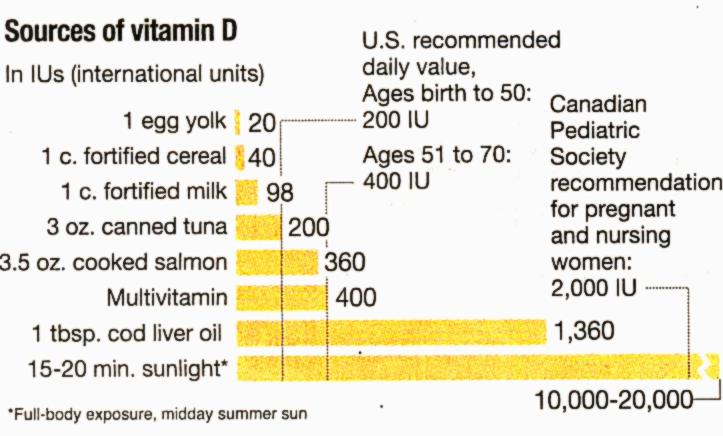
Vitamin D May Affect Breast Cancer
Canadian researchers find link in ten-year study of 512 women patients
By Marilynn Marchione
May 16, 2008
ASSOCIATED PRESS — Breast cancer patients with low levels of vitamin D were much more likely to die of the disease or have it spread than patients getting enough of the nutrient, a study found, adding to evidence the ‘sunshine vitamin’ has anti-cancer benefits. The results are sure to renew arguments about whether a little more sunshine is a good thing.
The skin makes vitamin D from ultraviolet light. Too much sunlight can raise the risk of skin cancer, but small amounts — 15 minutes or so a few times a week without sunscreen — may be beneficial, many doctors believe. While the vitamin is found in certain foods and supplements, most don't contain the best form, D-3, and have only a modest effect on blood levels of the nutrient. That's what matters, the Canadian study found.
Only 24 percent of women in the study had sufficient blood levels of D at the time they were first diagnosed with breast cancer. Those who were deficient were nearly twice as likely to have their cancer recur or spread over the next 10 years, and 73 percent more likely to die of the disease.
"These are pretty big differences," said study leader Dr. Pamela Goodwin of Mount Sinai Hospital in Toronto. "It's the first time that vitamin D has been linked to breast cancer progression."
But people shouldn't start downing supplements, she warned. Experts don't agree on how much vitamin D people need or the best way to get it, and too much can be harmful. They also don't know whether getting more vitamin D can help when someone already has cancer.
The study was released Thursday by the American Society of Clinical Oncology. Other evidence: People who live in northern regions of the world have higher cancer rates than those living closer to the equator, possibly because of less sunshine and vitamin D.
The Canadian researchers wanted to see whether it made a difference in survival. They took blood from 512 women at three University of Toronto hospitals between 1989 and 1995, when the women were first diagnosed with early-stage breast cancer.
A decade later, 83 percent of those who had had adequate vitamin D blood levels were alive without extensive spread of their cancer, versus 79 percent of those whose vitamin D levels were insufficient and 69 percent of those who were deficient, as defined by widely used medical standards for measuring intake. One red flag: The few women with the very highest levels of vitamin D seemed to have worse survival.

